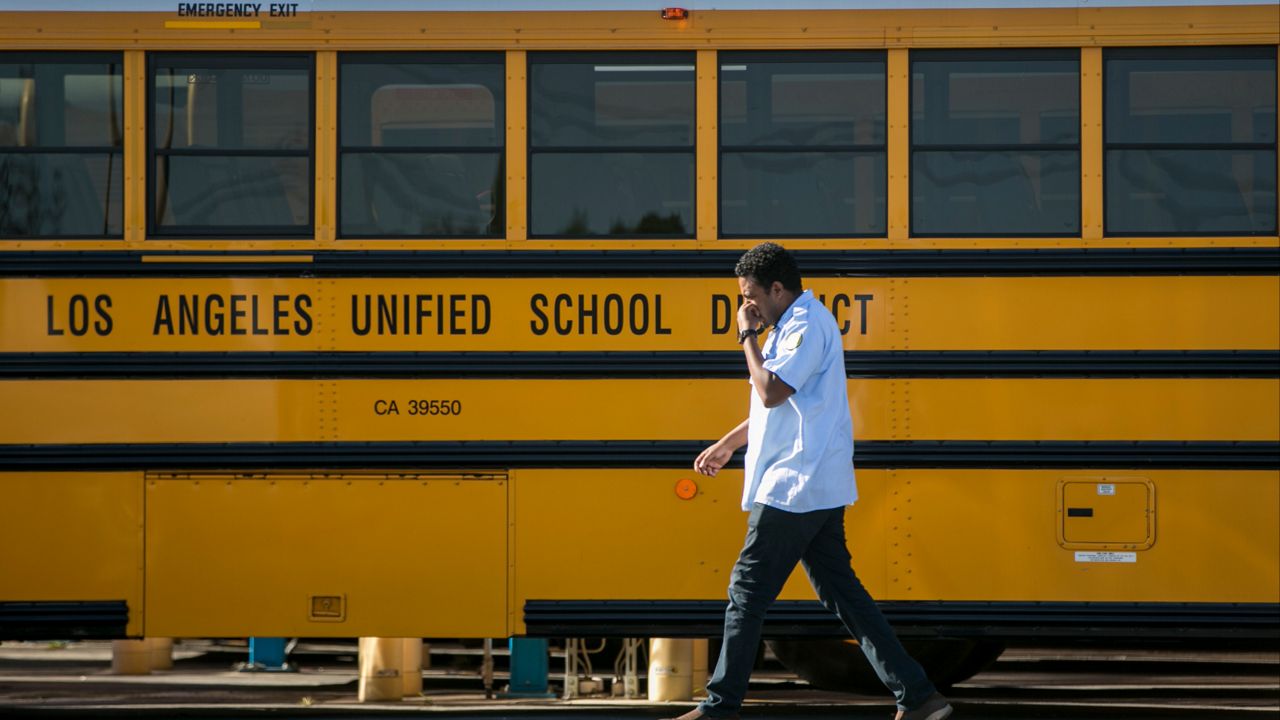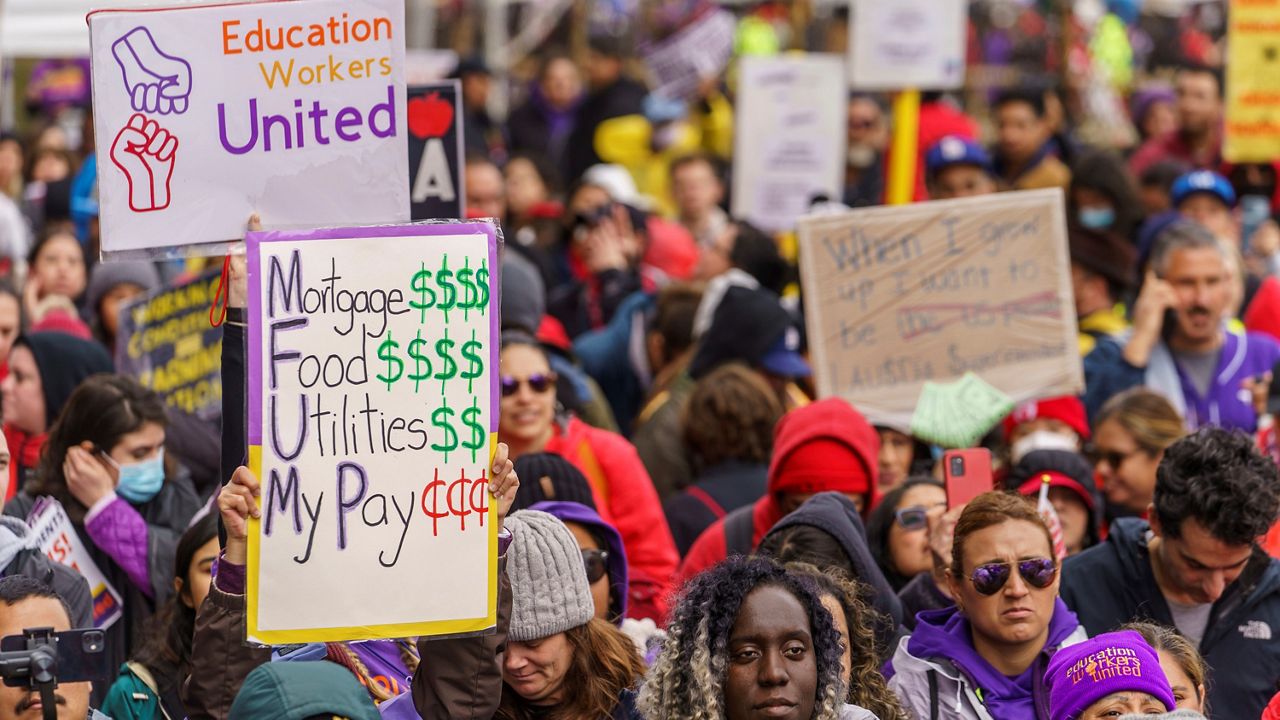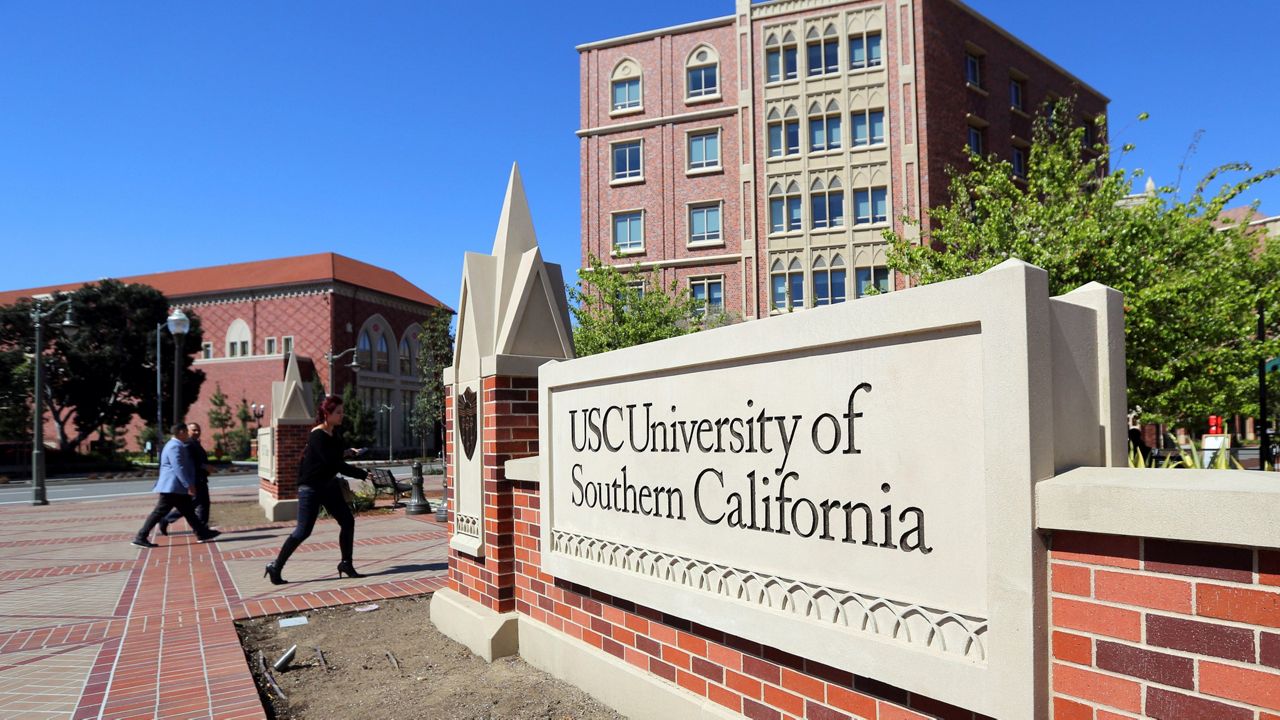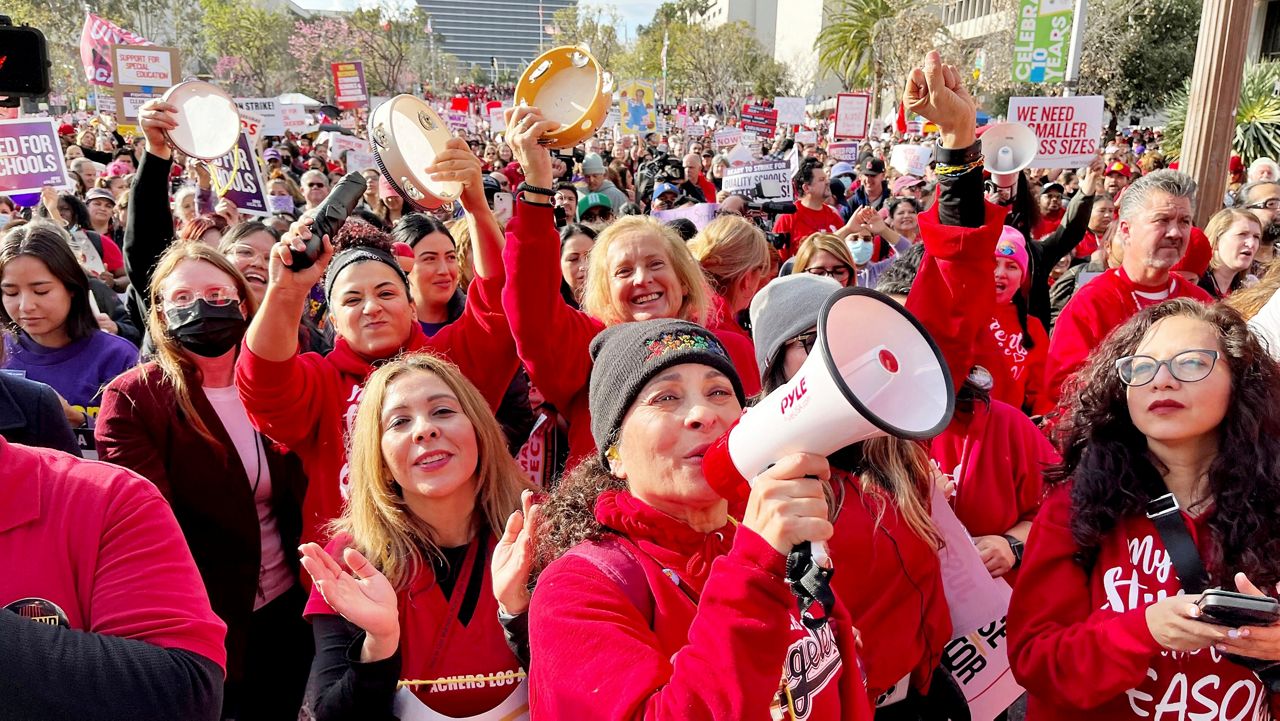LOS ANGELES COUNTY — A picture painted by elementary students 10 years ago still reminds Loyola Marymount University Professor Dr. Darin Earley of the impact he’s had on the lives of African American youth.
“As a Black educator, people entrust you with their kids, what are you going to do with the time that you have?” he said.
There’s a reason Dr. Earley emphasizes Black educators. Although he grew up in a household where both of his parents were teachers, he said he didn’t have a Black teacher in the classroom until he was in 10th grade.
It was then he realized the difference Black educators made on his learning experience, and pushed him into the profession as well.
Going on 33 years in education, having taught everything from kindergarten to doctoral students, Dr. Earley has noticed fewer Black students have the desire to teach.
One reason he says is because of the pay.
“[Students say] I might be the first generation student in my family and so I’m making the mark for family," he said. "[They feel] they don’t need to go into a career that earns $50,000-$70,000, [instead say] I need to look at a career that can pay me $150,000-$200,000 because I am changing the game for my family.”
There is a shortage of Black educators. Although African Americans make up 13% of the U.S. population, only 7% of all public school teachers are Black.
In California, more than half of the schools don’t have a Black teacher.
Monet Thompson is a sophomore screenwriting major at LMU. She’s decided to minor in elementary education because she was on the fence about pursing a career in teaching.
Salary, she said, wasn’t the primary deterring factor. For Thompson, the idea of dealing with racial disparities in the education system makes her nervous.
“I know there will be a time when I have to teach something in my classroom and it may not be something that aligns with me," she said.“I know there will be a time when I have to teach something in my classroom and it may not be something that aligns with me," she said. "Just thinking about that and knowing that it could happen in the future kind of pushes me away from wanting to be an educator.”
But a tutoring program, Cultivating Young Black Excellence (CYBE), has changed her perspective.
LMU and parent education advocacy group Speak Up paired Black undergrad students with Black LA Unified School District students.
The goal is to recover learning loss for minority K-12 students, at the same time, CYBE encourages the tutors to explore the possibility of a career in teaching.
“It sort of solidified in my mind that I could be a teacher," Thompson said. "It was the first time that I sort of got to design my own lesson plans and used my own resources and materials to help a child out.”
This summer, 22 LMU student participated in the pilot program, many are studying majors other than education.
Data from Speak Up found, about 70% of the tutors say they now plan on exploring the possibility of a career in teaching.
There are studies that actually prove low-income African American students have a higher chance of graduating from high school and attending college if they have had at least one Black teacher.
Speak Up also reports 71% of LAUSD student have "met or exceeded their initial goal" after participating in the virtual tutoring sessions with LMU undergrad students.
Thompson doesn’t plan on teaching for as many years Dr. Earley and he’s OK with that, “You don’t have to be a teacher forever," he said. "If they do it for a little while and they take it seriously they can do really good work.”











